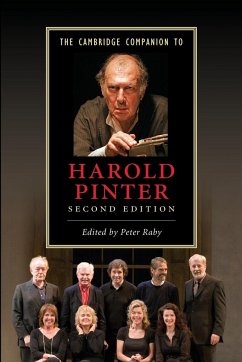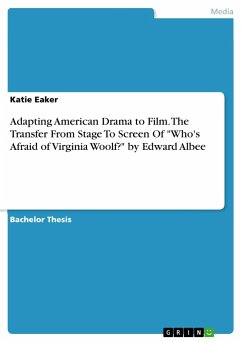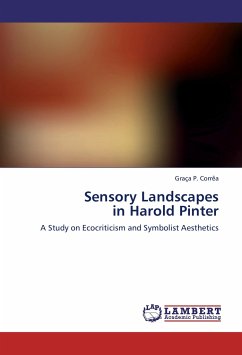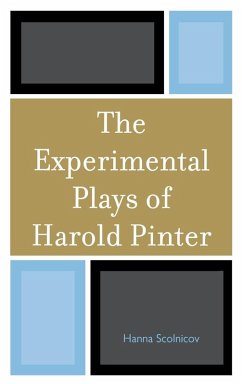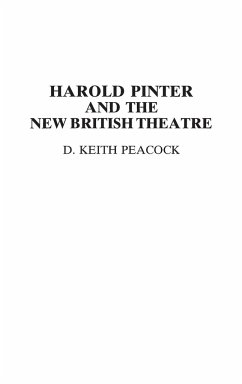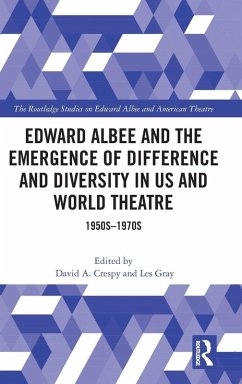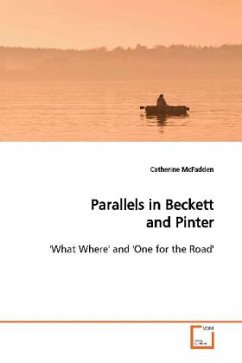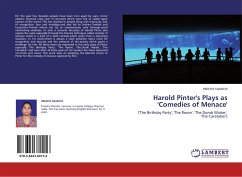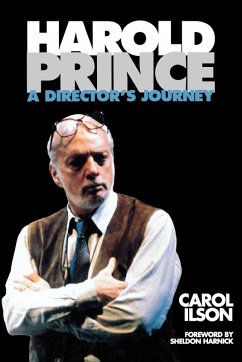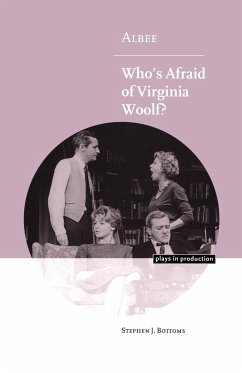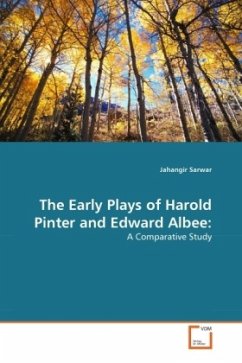
The Early Plays of Harold Pinter and Edward Albee
A Comparative Study
Versandkostenfrei!
Versandfertig in 6-10 Tagen
39,99 €
inkl. MwSt.

PAYBACK Punkte
20 °P sammeln!
Harold Pinter, a Nobel laureate, has been the most gifted and prolific playwright of the British theatre. His portrayal of the vulnerability of the individual in the face of often unidentifiable sinister forces and his skilful use of spare, elliptical, allusive dialogue created the distinctive appeal of his early plays. Edward Albee, the dissenting voice of the American theatre, struck very hard at complacent conformity and corrosive materialism of the American society when he appeared on the scene with his The Zoo Story. However, his Broadway debut Who's Afraid of Virginia Woolf? made him fam...
Harold Pinter, a Nobel laureate, has been the most gifted and prolific playwright of the British theatre. His portrayal of the vulnerability of the individual in the face of often unidentifiable sinister forces and his skilful use of spare, elliptical, allusive dialogue created the distinctive appeal of his early plays. Edward Albee, the dissenting voice of the American theatre, struck very hard at complacent conformity and corrosive materialism of the American society when he appeared on the scene with his The Zoo Story. However, his Broadway debut Who's Afraid of Virginia Woolf? made him famous overnight. These two playwrights have contributed greatly to the growth and development of modern theatre. This book minutely examines the dramatic language of their early plays that opened up new avenues in modern drama by its experimental technique and unconventional tone. This penetrating study will help the students and researchers at college and university to form a clear idea aboutthe growth of Pinter and Albee's literary background and their contribution to the modern theatre with reference to their views on the art of playwriting and staging.



